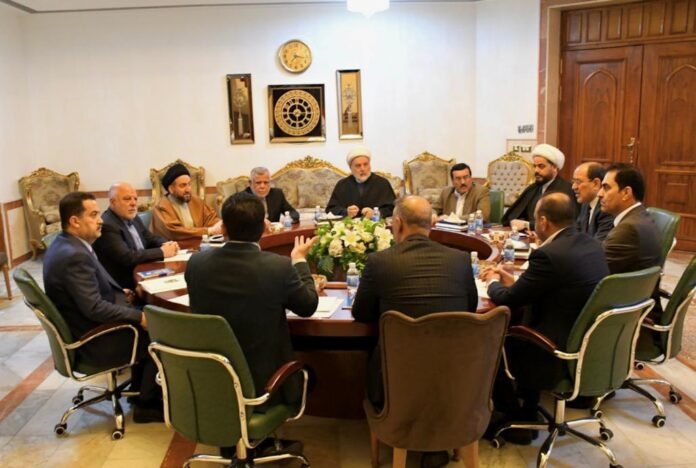The Coordination Framework fears alliance that could reshape Iraq’s upcoming elections. On July 15, 2025, leaders of this major Shia coalition met to discuss moves by cleric Muqtada al-Sadr. His recent actions suggest a possible new partnership with Prime Minister Mohammed Shia Al-Sudani.
Moreover, the meeting took place at the office of former Prime Minister Haider al-Abadi, who leads the Al-Nasr Coalition. Sources inside the Framework say the coalition struggles with how to respond to this “new equation” created by Al-Sadr’s political shifts.
Meanwhile, Al-Sadr keeps his boycott of the November 11 elections but hinted at supporting an “alternative bloc.” This bloc would back his reform program, signaling a shift in strategy.
Importantly, Al-Sadr’s program focuses on key reforms. These include Iraq’s independence, state monopoly on weapons, strengthening the army and police, dissolving militias, and legally restructuring the Popular Mobilization Forces (PMF).
However, these demands clash with views held by parts of the Coordination Framework. More critically, some leaders see them as aligning with Prime Minister Al-Sudani’s stance.
As a result, the Coordination Framework fears alliance between Al-Sadr and Al-Sudani might form. Leaders worry that Al-Sadr could indirectly back Al-Sudani in elections. Such a move could create a strong rival bloc, threatening the Framework’s control.
Furthermore, the Framework discussed ways to prevent voter shifts that might fragment their power. Political analyst Atheer Al-Sharaa said Al-Sadr’s release of his “Triple Alliance” documents signals his rejection of past consensus politics. He feels betrayed and wants no repeat.
Additionally, Al-Sharaa noted that Al-Sadr’s demand to disarm all factions faces rejection by many armed groups, complicating any real consensus.
In conclusion, Al-Sadr’s latest moves have shaken Iraq’s political scene. The Coordination Framework fears alliancebetween its rivals, including the prime minister, posing a serious challenge in the November vote.Looking forward, the Coordination Framework plans to strengthen its campaign strategies and engage with voters more actively to counter any emerging alliances and maintain its influence in Iraq’s political landscape.


